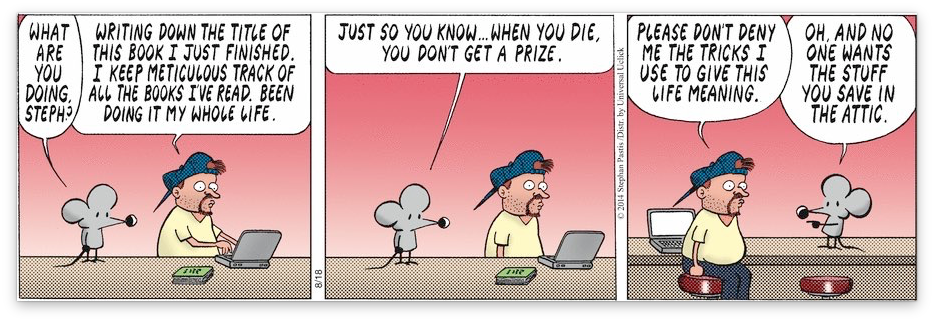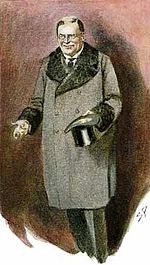[For an explanation of this series, see the post The (Book) Lives of the (Not So) Rich and (Marginally) Famous. I will be asking the same questions of all I interview, with a few followup questions as needed.]
❦
The title of the originating post in this series makes mention of the rich and famous. My friend Staci is neither, if measured by dollars in the bank and widespread name recognition. She is, however, rich relationally, with a husband and four adopted daughters and friends scattered over many states and several continents. And to those who know her, she is famous for her passion for Jesus and for representing him with integrity by loving the world around her. She should be famous for being a consumer of books. Her volume of reading is such that it will take two posts just to keep up with her, and then we will have to stop and catch our breath. If you like to read or want to begin to read more widely, I commend Staci to you. To Staci I owe my introduction to some of my favorite books (Gilead and The Elegance of the Hedgehog, to name a notable two.) It is to be lamented that this homeschooling mom who also works as an engineer and as an advocate of adoption (currently Family Program Director with Chosen, and for some reason, long ago, gave up trying to find time to continue her blog (last updated in 2014). I’m happy to introduce you to Staci and her reading habits.
❦
Randy: In the past year, approximately how many books did you read for ‘enjoyment’ (that is, books outside your direct professional interest)?
Staci: I read 42 books for enjoyment in 2016.
What motivates you to read books outside your profession?
Simply put, my life is better when I’m reading profusely. I’m a sharper employee, a more compassionate mother, a more connected wife, a better friend, and a kinder person. I would rather read than do anything else, so it’s not too much of an effort to make profuse reading occur.
How do you choose what books you will read?
The Sunday New York Times Book Review – I read it every Sunday and if there is a review of a book that sounds good, I add it to my TBR list, which I keep on a spreadsheet.
You sound like an engineer. The answer to every problem involves a spreadsheet. What other sources add to your spreadsheet?
What Should I Read Next Podcast – I listen to this podcast and read this website daily for book recommendations.
Book lists – I am obsessed with reading book lists, and if I see a title that repeatedly shows up on various lists, I add it to the spreadsheet. Every year I read the New York Times’ Top Ten Best Books of the Year, and then I’ll work through their top 100 picks for the year if I need something else to read. Last week I found a list that took all of the best of the year books and put the most frequented books on one list. All 20 of those books went on the spreadsheet.
Author Ryan Holiday sends out a monthly email of the best books he’s read each month; he recommends quality non-fiction titles.
Slate has some great book reviews and lists that I look at.
I do not read fluff; I know what I like and so it’s extremely easy for me to choose books that I know I’ll love. I rarely read something that I don’t like because I research pretty heavily.
How do you choose what books to read next?
I look at my spreadsheet and figure out how to read each book the most economically. Every day I look at Modern Mrs. Darcy Kindle Daily Deals. She does the hard work of putting together the quality titles that are on sale, and if I can get a book on my Kindle for $2.99, I’ll download it that day. If I have credits to use on my Audible account, I’ll download a book there that is on my spreadsheet. And if neither of those options are grabbing a book on the spreadsheet, I’ll reserve from the library. If the list at the library is too long, I’ll order it used from AbeBooks or used off of Amazon.
I always make sure that I have two fiction titles and at least one non-fiction title going at the same time. I despise reading only one book at a time unless it’s a classic, and then I have to only concentrate on the classic.
What book or books are you reading now? [Note: I asked this of Staci in December of 2016.]
The Association of Small Bombs by Karan Mahajan (on Kindle)
Evicted by Matthew Desmond (on Kindle)
The Nix by Nathan Hill (on Audible, so listening when exercising and in the car)
Emotional Agility by Susan David (hard cover)
The Secret Keepers by Trenton Lee Stewart (aloud to my kids)
Counter Culture by David Platt (aloud to my older teens)
What three or four books do you find you most often recommend to others?
Anything by Marilyn Robinson to people who like deep stuff and who want their lives to be changed – Home is my favorite
The Elegance of the Hedgehog by Muriel Barbery for people who want to laugh and like beautiful writing;
Anything by Stewart O’Nan for people looking for not so deep but quality writing;
Constellation of Vital Phenomena by Anthony Marra because life is too short to not read a book this good (note: R-rated material and very sad);
Bonus pick for Christians: The Grammar of God by Aviya Kushner because I LOVE this book and I think every studier of the Bible should read this as soon as possible. Get this one in hard cover because you will want to visit with it more than once.
Bonus kid pick: Mysterious Benedict Society series because this is a great series and a lot of parents don’t know about it.
A great list! Thanks, Staci. I will follow up soon with a question about finding the time to read.



